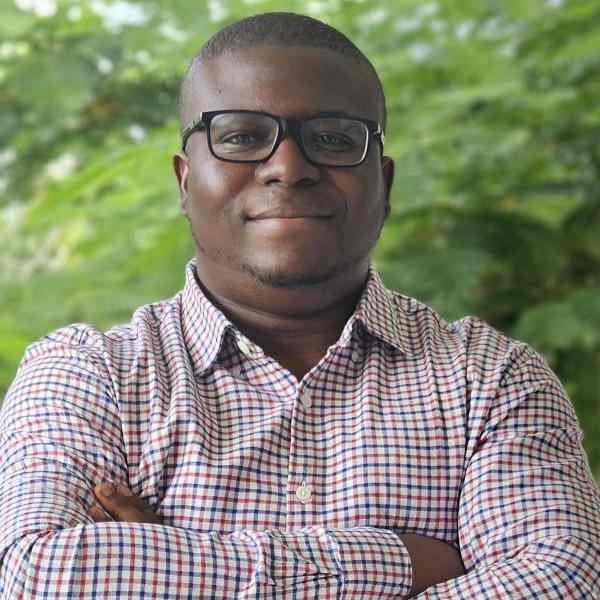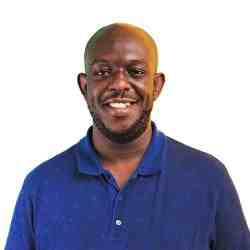Introduction
Nelson is enabling the administration of justice by introducing tech solutions to improve the management of cases and the access to legal help for all.
The New Idea
Nelson is working to revamp the justice delivery system in Nigeria so that everyone, regardless of their socio-economic status, has a fair chance at justice. He is doing this by ensuring that case files are not lost, and that everyone has access to a lawyer. He is also working to improve the conditions in prisons and detention centers, so that people are treated fairly and humanely.
He is doing this by partnering with the Office of the Chief Justice of Nigeria to design and deploy a case management system called Justice Clock. Justice Clock is an automated system that tracks and manages cases that are currently in progress, and it sends out reminders to the relevant desk officers when a case is in default. This helps to ensure that case files are not lost and that everyone who has a case gets their day in court. The system has already been deployed at the Department of Public Prosecution, and it has seen a significant turnaround in the justice delivery system. Nelson is confident that Justice Clock will continue to improve access to justice for all Nigerians.
Nelson is also working to ensure that all Nigerians are aware of their legal rights and know how to seek justice when their rights are violated. He is doing this through his organization's platform called PODUS, which provides a one-stop shop for legal information and assistance. PODUS connects citizens to a network of pro-bono lawyers who can help them with their legal problems, and it also provides information on the legal process and how to navigate the justice system. So far, PODUS has reached over 11 million people in 26 states of Nigeria, and it has helped to secure justice for thousands of Nigerians.
The Problem
The average court case in Nigeria has a lifespan of 3.7 years. Seventy percent of inmates in Nigerian prisons are “awaiting trial” In the outdated court systems, cases are represented by paper files and folders that routinely get lost to theft, carelessness, or even arson. Many inmates have been incarcerated longer than necessary or even for life simply because of the loss of the file representing them, and because the courts did not have any system to trace lost case files, they simply ignored them. Many interventions have been introduced by non-profits to tackle the problem of justice delivery and case management through workshops and sensitizations for judiciary officers. Unfortunately, the problem has persisted. The slow pace of justice delivery has significantly contributed to the high rate of pre-trial detention in Nigeria. Sadly, based on data sourced from Nigerian State High Courts through the National Judicial Council, the fastest court in Nigeria dispenses justice in 391 days (about 1 year), and the slowest takes 2118 days (about 6 years) to do the same.
The problems revolve around the traditional system used by the judiciary in Nigeria which is resistant to change and digital innovation. This system is burdened with a lot of administrative bottlenecks that make it difficult to get justice speedily. In addition, the courts are overcrowded with cases that normally shouldn’t take up the time and resources of the court. The congestion of the courts creates loopholes where people with financial means can move their cases from the very bottom of the pile to the top of the docket through corrupt practices. There is a lack of accountability on the part of the civil servants within the rank and file of the judiciary due to a lack of appropriate monitoring of their activities to ensure effectiveness and efficiency. Lastly, there is a lack of inter-agency cooperation and effective coordination between justice actors such as the law enforcement agencies, correctional officers, and the Department of Public Prosecution, which also contributes to the very slow pace of justice delivery. All the above combined with the ignorance of average citizens about their rights hold up the problem, thus making it seemingly intractable. The government, both at the federal and state levels, private sector and civil society have at one time or the other undertaken to address the problem of access to justice through special committees, symposia, and workshops, unfortunately, no solution has approached it from the systemic angle.
Sadly, the unintended consequences of the slow pace of justice delivery are the flagrant human rights abuse of citizens by armed agencies such as the police who are tasked with the protection of citizens’ lives and properties. Statistically, 1 in 8 persons have legal problems in Nigeria, ranging from police brutality to domestic violence, to land-related problems. Police brutality is a serious problem in Nigeria that has been going on for decades and has gotten worse in recent years. The major victims of these rights abuses and brutality are often young people, the poor, and the marginalized who are targeted because they are seen as easy prey. Interestingly, the major cause of brutality by armed agencies such as the police is lack of accountability to anybody due to the corruption within the agency itself and the slow pace of justice delivery within the court system, which sees the abusing agency arbitrarily locking up citizens without just cause for years and denying them their day in court.
The Strategy
Nelson has adopted a two-pronged approach of using technology to increase citizens’ access to justice, raise awareness of their rights, and expedite the delivery of justice.
First, he is using technology in the form of his innovative case management system, Justice Clock, to make it easier for the Department of Public Prosecution (DPP) to file legal documents and track documents in court, find legal resources, and follow the progression of cases, and by so doing ultimately reduce the time it takes for citizens to get the justice they need. The system shows and reminds the DPP of cases where they are defaulting after a period of 28 days from the time of filing. Furthermore, Nelson’s Justice Clock has triggered the conversion of previously physical case files into digital copies that are stored on a central database to ensure that no one who is yet to be convicted is forgotten in the system due to the loss of case files from theft, arson, corruption, or vandalism. This case system has been adopted by Lagos and Ogun states’ judiciaries, and it is helping to improve the pace of justice delivery in these states.
Nelson and his team have made significant progress in securing government partnerships and buy-in. As a result, the Chief Justice of Nigeria has issued a Practice Direction to all State Chief Judges, mandating Magistrates to visit and monitor Police Stations periodically within their respective jurisdictions to ensure the prompt release of all inmates wrongly held in detention and ensure that the appropriate court proceedings are initiated against the lawfully detained ones to grant them their day in court. This is an effort to curtail unwarranted arrests of citizens by corrupt police officers and checkmate their highhandedness.
Secondly, Nelson is using technology through the Podus platform to educate citizens about their legal rights and connect victims of injustices to lawyers within their location for swift legal support and redress, hence ensuring that citizens are aware of their options and that they are not taken advantage of. The platform uses the Uber model as it connects citizens with lawyers for quick legal support hence the nickname “Uber for Justice”.
The Podus platform has a database of 260+ pro bono lawyers across 26 states in Nigeria and is not constrained by the conventional brick-and-mortar pro bono legal system where victims need to get to a physical office before they can access a lawyer. They simply get on the platform, submit their grievances and in less than 24 hours a lawyer from Citizen Gavel’s team reaches out to assist.
To support the lawyers on the Podus platform, Nelson’s Citizen Gavel provides a transport stipend for lawyers each day they have to appear in court for a victim of human rights abuse. Due to the spread and reach of the Podus platform, many human rights law firms have onboarded their lawyers on the platform to scale and accelerate their impact.
Nelson's PODUS platform has become so popular among lawyers in Nigeria who are seeking to become Senior Advocates of Nigeria that it is now considered the best platform for building up a portfolio of pro bono cases. This is because PODUS provides lawyers with the opportunity to represent indigent clients in need of legal assistance, which is a requirement for becoming a Senior Advocate of Nigeria. A Senior Advocate of Nigeria is a title conferred on lawyers in Nigeria of not less than ten years who have distinguished themselves in the legal profession.
Nelson and his team have also overcome the challenge of reaching people who do not have access to the internet or smartphones. They do this by outreaching to these communities through townhalls, community gatherings, and the distribution of picture-based infographics in local languages. These infographics highlight citizens' rights and how to seek redress. As part of their strategy, Nelson's team leave their contact information in these communities so that people in need of legal assistance can reach them through their friends or family members who have access to the internet or phones. Nelson and his team provide legal assistance to people who have been victims of human rights abuse, police brutality, coercion and extra judicial killings, domestic and gender-based violence, bank extortion, and other forms of injustice. They work to ensure that victims get justice and that perpetrators are held accountable.
Over the course of his work, Nelson and his team have partnered with the National Judicial Council, Oyo, Lagos and Ogun States’ Ministries of Justice, the Legal Aid Council as well as regional legal bodies. He has reached 11 million beneficiaries spread across 26 states in Nigeria, and he has secured over 55 million Nigerian Naira (i.e., over $80,000) as compensation for victims of injustices.
The Person
Nelson grew up as the last child in a family of four. Growing up, he saw his father almost losing their family house due to a misunderstanding with a bank. The harrowing legal ordeal eventually came to an end after 11 years of constant court appearances. This experience made him decide as a child to study law in order to fight the cause of the oppressed in society.
During his undergraduate days, he set up a small business to assist fellow students with typing, printing and binding assignments, projects and thesis as a way to support himself through school. This entrepreneurial ability came in handy during his one year at the Nigerian Law School where he set up a start-up called “hilegals”, a platform for fellow law students at the law school and fresh lawyers to collaborate regardless of physical barriers and location.
Upon graduation, he secured a high-profile job at a law firm, but quit shortly afterwards to set up Citizen Gavel as it dawned on him that he was slowly losing touch with his innate yearning to fight the cause of the oppressed.
Through Citizen Gavel, Nelson advocates for victims of human rights abuses, police brutality, domestic violence, bank extortion, and gender-based violence. He is known for his work on police brutality, coercion and extra judicial killings. He is committed to using technology to improve the lives of Nigerians and to make the justice system more accessible and fairer.




